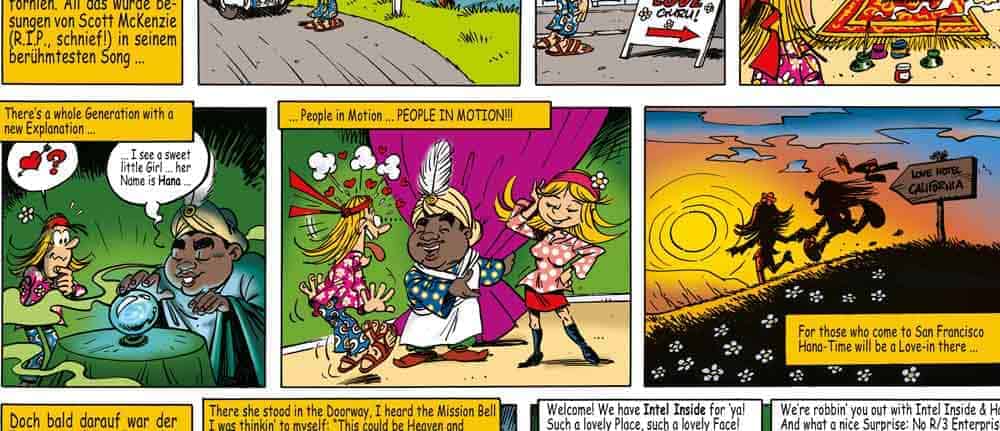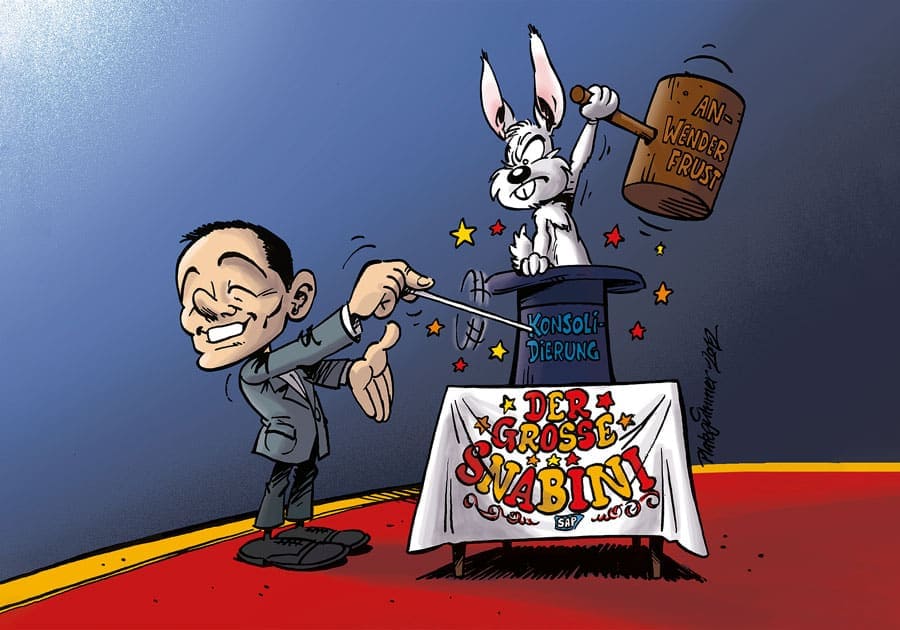Consolidation and legacy assets


They say that new brooms sweep well. In the case of SAP, it's a little different: a clean workplace is to be created for the future Chairman of the Supervisory Board (from the 2024 Annual General Meeting) and the new CFO, as successor to Luka Mucic. Christian Klein is consolidating, harmonizing and re-orchestrating the ERP group - not always to the delight of SAP's existing customers, who are increasingly expressing their frustration.
But this is not new. Even under the dual leadership of Jim Hagemann Snabe (see illustration) and Bill McDermott, tidying up the Group was not always to the benefit and delight of users. It is always a balancing act: The ERP group is supposed to develop technically, and the margin is supposed to grow. The aim is to make things simpler and cheaper, but the old and the familiar must not be touched: Never Change a Running System.
And now it's happened again: SAP has presented a supposed innovation and wants to be celebrated for it. Jürgen Müller, Chief Technology Officer and member of the SAP Executive Board, presented another data management tool shortly before the DSAG Technology Days: SAP Datasphere. Datasphere was also a topic in his keynote speech in Mannheim at the Technology Days. The promises for the future were trumpeted loudly, leaving the SAP community and the DSAG members present wondering: Doesn't Müller know about SAP's successful past? Does he not know the attempts of his predecessors such as Shai Agassi, Vishal Sikka and Bernd Leukert? Does he not know the products SAP NetWeaver, SAP Data Hub and SAP Information Steward?
Jürgen Müller has conjured an interesting product out of the cylinder with Datasphere, which is, however, a repeated attempt to consolidate the data chaos between the respective SAP apps. The app proliferation of the past few years has created an enormous amount of additional work for users. Harmonization and orchestration have become one of the most important tasks for SAP's existing customers.
The digital transformation is suffering from self-inflicted data chaos, so it is right that Jürgen Müller is tackling this problem again. However, there is a lack of a continuous overall concept. SAP's existing customers have a history. They have invested in the NetWeaver, Data Hub, Information Steward and Warehouse products and want to build on this in an evolutionary way: instead, new products and new partners again.
Legacy issues are to be accepted and need not be a disadvantage. An evolutionary transformation ensures continuity and investment. SAP is innovative, but SAP has lost contact with the SAP community. Christian Klein and Jürgen Müller should discuss more with partners and users again. It is a matter of listening and learning - with less show and magic.







